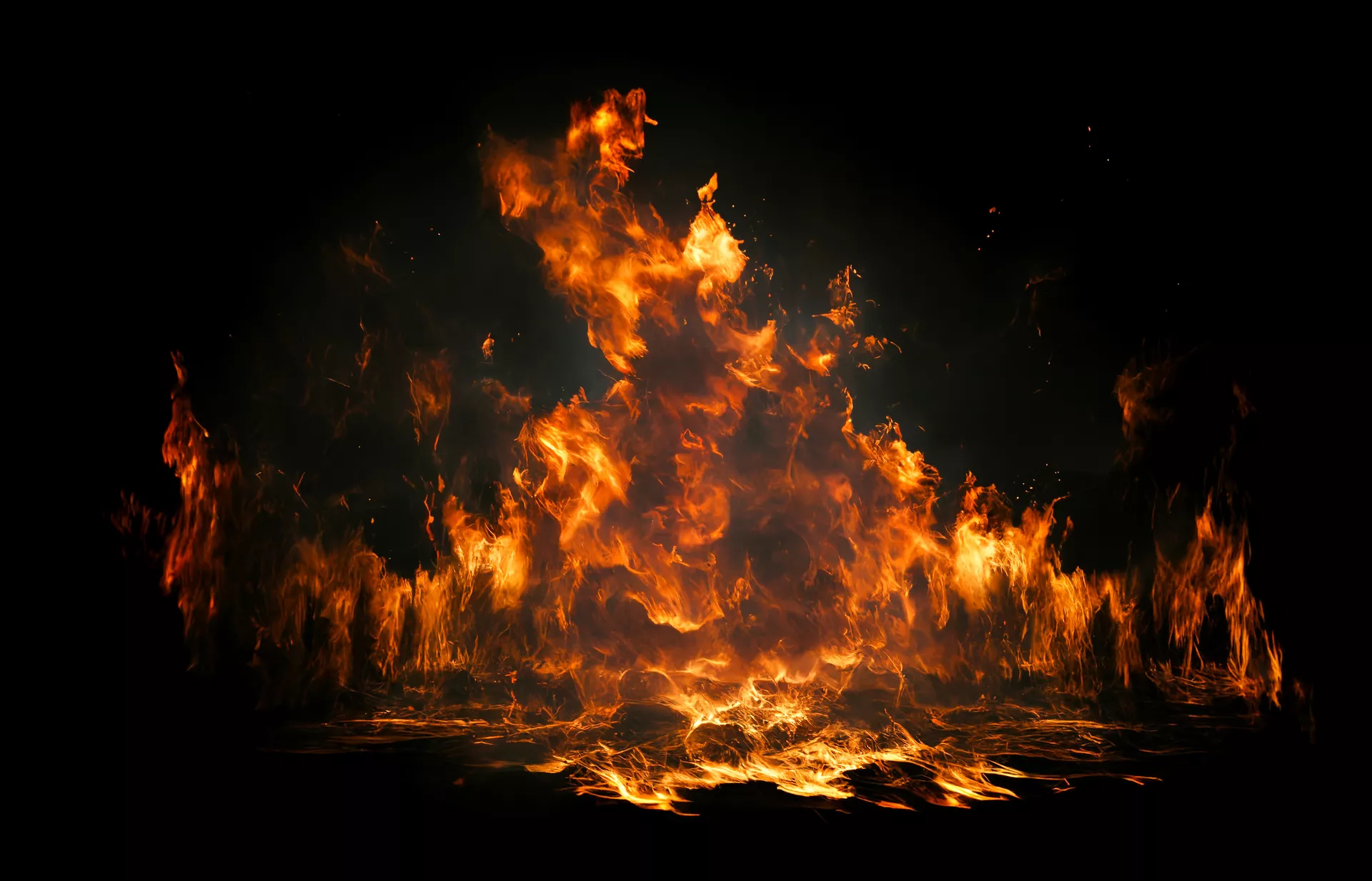For over a decade, Arnolds Field in Rainham, East London, has been a site of environmental disaster. Originally a quarry slated to become a public park, it has devolved into an illegal landfill burning continuously beneath the surface. Known locally as the “Rainham Volcano,” this 40,000-cubic-meter dump emits toxic fumes that blanket nearby communities, threatening public health and straining local resources.
The site contains a dangerous mix of unregulated waste, including plastics, asbestos, industrial materials, and even carcinogenic substances. Despite frequent fires—46 recorded in 2022 alone—Havering Council and the Environment Agency have failed to address the crisis. Firefighters, restricted to hosing the site from the roadside due to the hazards, have attended over 150 incidents, using more than 4,200 personnel to combat the flames. Gas explosions and unstable ground conditions make on-site efforts too dangerous.
A History of Negligence and Crime
Arnolds Field’s troubles began in the 1990s when planning permission was granted to turn the quarry into a legal dump and, later, a community park. However, lack of oversight allowed illegal dumping to proliferate. By the early 2000s, criminal elements, including drug operations, had taken over. In 2012, a drug bunker containing cannabis farms, weapons, and guard dogs was discovered on the site, leading to the conviction of Irishman John Joseph Reilly, who had been operating illegal activities and waste dumping for years.
The site was never remediated after these incidents, and the fires persisted. Investigations into the soil have revealed high levels of harmful gases and carcinogens, including polycyclic aromatic hydrocarbons (PAHs), yet the council maintains that there is “no public health risk.”
The fires’ impact on Rainham residents is severe. Toxic smoke travels quickly, reaching nurseries, homes, and workplaces within minutes. Residents report symptoms like respiratory distress and burning throats. Children at local nurseries are forced to stay indoors during fires, while vulnerable individuals, including those with asthma, face heightened health risks. Many residents, unable to trust the council’s claims, use handheld devices to measure pollutants themselves.
Havering Council has issued contradictory statements, urging residents to keep windows closed during fires while claiming there is no significant air quality impact. Despite commissioning soil and air quality tests, the council’s efforts have been limited and ineffective, leaving the community exposed to ongoing harm.
Responsibility for the crisis remains contested. Havering Council claims the site’s status as private land limits their jurisdiction, yet they granted the original planning permissions. Meanwhile, the Environment Agency, landowner DMC Services, and other stakeholders have failed to take decisive action. In August 2023, the council initiated legal proceedings against the landowner, but no substantial progress has been made.
Residents are now taking matters into their own hands. A group of local mothers has engaged a top law firm to challenge the council’s decision not to designate Arnolds Field as contaminated. The lawsuit aims to compel authorities to prioritize public safety and enforce cleanup measures.
For Rainham residents, Arnolds Field represents more than just an environmental hazard—it symbolizes years of neglect and systemic failure. The community continues to support firefighters on the front lines, bringing water and supplies during long battles against the flames. However, their patience is running out as they demand accountability from local and national authorities.
Arnolds Field remains a toxic time bomb, endangering lives and the environment. Until meaningful action is taken, the fires will continue to burn, leaving a trail of destruction in their wake.
XML.co.za delivers cutting-edge tech news, insightful analysis, and practical resources to help readers navigate the rapidly evolving digital world, with a focus on innovation and technology’s impact in South Africa and globally.

